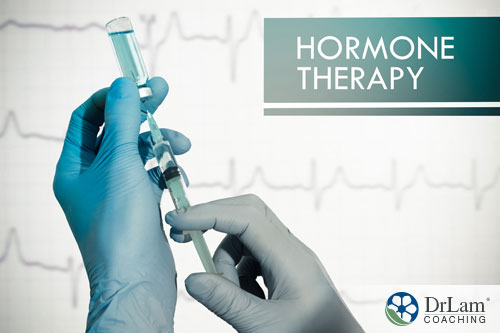 Hormones are the chemical messengers of your body. They control the major bodily functions including reproduction, mood, emotions, and memory. When your hormones go out of balance, it can create havoc in your body. An imbalance in your hormone levels can contribute to various neurological conditions including symptoms of memory loss. Hormone therapy for memory loss has been considered as a recent option to improve memory and cognitive function. However, studies on the benefits and side effects of hormone therapy have given less than satisfying results. Fortunately, there are effective natural solutions to support the healthy functioning of your brain and memory, and analyzing the cause for declining memory can also help in successfully addressing the problem.
Hormones are the chemical messengers of your body. They control the major bodily functions including reproduction, mood, emotions, and memory. When your hormones go out of balance, it can create havoc in your body. An imbalance in your hormone levels can contribute to various neurological conditions including symptoms of memory loss. Hormone therapy for memory loss has been considered as a recent option to improve memory and cognitive function. However, studies on the benefits and side effects of hormone therapy have given less than satisfying results. Fortunately, there are effective natural solutions to support the healthy functioning of your brain and memory, and analyzing the cause for declining memory can also help in successfully addressing the problem.
Sex steroid hormones such as estrogen in women and testosterone in men are associated with memory function. These hormones naturally peak during youth and start declining with age. Studies have linked low level of sex hormones with reduced cognitive function and memory loss. In such cases, some people consider hormone therapy for memory loss to help restore healthy levels of the hormones.
These important hormones are related to your cognitive ability and memory:
Produced in the testes, the male sex steroid hormone testosterone is responsible for maintaining sex drive, sperm development, muscle mass, red blood cells, bone density, vigor, and well-being. Compared to men, women produce lower quantities of testosterone.
In males, the frontal lobe of the brain contains several receptors for the testosterone hormone. Low testosterone production causes a decline in cognitive function, memory issues, and symptoms of progressive dementia. Reduced testosterone production also increases secretion of beta-amyloid proteins, a marker of Alzheimer’s disease. The learning and memory neurotransmitter, acetylcholine, also depends on adequate production of testosterone.
The hormone also influences the secretion of the neurotransmitter dopamine, which has a role in protecting your brain from Parkinson’s disease. Testosterone levels begin to decline in men around the age of thirty. The hormone level continues to decline unless a healthy lifestyle is maintained. Low testosterone levels lead to neurodegeneration and poor memory function.
Some of the common symptoms associated with declining testosterone include:
Hormone therapy for memory loss has been considered to help balance testosterone levels.
Estrogen is an important female steroid sex hormone produced in the breasts, ovaries, liver, hypothalamus, fat cells, and adrenals. This hormone is crucial for sexual and reproductive development in women, memory, and anti-aging. With menopause and aging, the production of estrogen gradually begins to decline.
Some of the common symptoms associated with declining estrogen include:
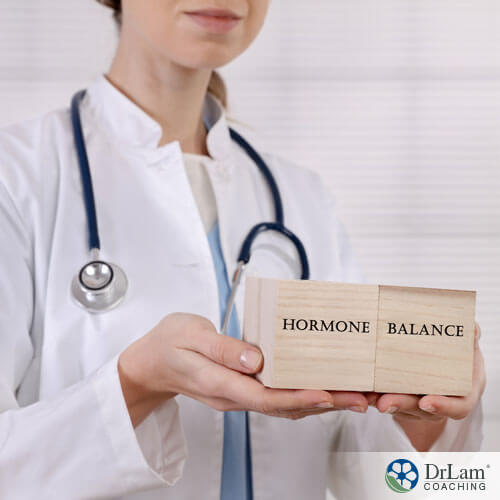
Your adrenal glands secrete steroid pregnenolone hormones. A higher concentration of the hormone is found in the nervous system than in the bloodstream. Made of cholesterol, pregnenolone is the precursor hormone required for the production of other steroid hormones such as progesterone, testosterone, estrogen, cortisol, and DHEA. Studies show that pregnenolone enhances the ability to gain knowledge, motivation, and long-term memory.
The pregnenolone hormone helps reduce stress-induced fatigue and improve mood, energy, and immunity. The hormone also operates as a potent neurosteroid in the brain. It modulates the transmission of messages between neurons and strongly influences memory and learning processes. The level of pregnenolone drops with aging and when your adrenal glands are stressed. Fear, depression, anger, anxiety, toxin exposure, chronic stress, trauma, chronic inflammation, and excessive exercise are some of the common causes of adrenal stress.
Some of the common symptoms associated with declining pregnenolone include:
Hormone therapy for memory loss hopes to help normalize pregnenolone levels. Research, however, shows that the therapy comes with many serious side effects and may not be effective.
Studies confirm that people with dementia and Alzheimer’s disease have a lower level of sex hormones when compared to people who do not have cognitive issues. The decline of the sex hormones testosterone and estrogen raises the risk for cognitive decline, dementia, and memory loss.
Hormone therapy for memory loss focuses on restoring the normal level of sex hormones in your body. Before the individual begins with the therapy several factors such as timing, age, and duration are taken into consideration. It is important to understand that both estrogen and testosterone are essential for healthy cognitive function. Having a healthy level of both these hormones is important for memory and overall health.
However, whether supplementing with hormones to improve these measures is an effective pathway to health remains to be seen.
Estimates reveal that of people with dementia, over 65 percent of them are women. The exact reason for their higher risk of memory loss is not fully understood. However, health experts suggest hormonal imbalances due to aging could be an important factor in the onset of dementia.
Women are at high risk of having memory loss after menopause as sex hormones start declining during this period. As sex hormones are responsible for cognitive function, restoring the hormone balance can minimize the risk of memory decline. In post-menopause, the hope is that women restoring estrogen levels can help fight symptoms of memory loss as well as reduce fatigue, hot flashes, and risk of osteoporosis.
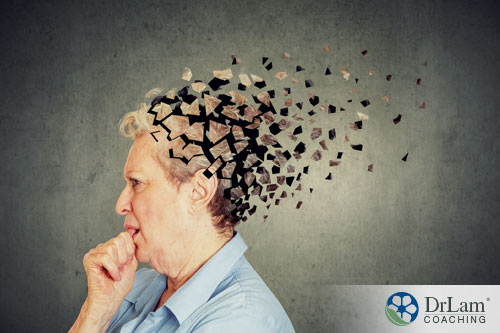 One earlier study suggests that women with hormone therapy had better memory functioning than women who did not undergo the therapy. According to the study, estrogen therapy post-menopause protected the short-term recall cognitive region of the memory from the negative effects of stress.
One earlier study suggests that women with hormone therapy had better memory functioning than women who did not undergo the therapy. According to the study, estrogen therapy post-menopause protected the short-term recall cognitive region of the memory from the negative effects of stress.
However, more recent studies show that hormone therapy did not cause any significant improvements in memory. Further, studies have pointed out serious potential health risks of hormone therapy. The use of estrogen and progesterone has been linked with increased risk of heart disease, blood clots, stroke, and breast cancer.
Thus, estrogen hormone therapy for memory loss in postmenopausal women has so far produced inconsistent results.
Hormone therapy in men is used to boost testosterone levels which can help reduce symptoms of memory loss. However, it is important to understand that the level of testosterone required for maintaining sexual function, body mass, and strength differs from person to person. This means that for healthy bodily functioning, the amount of testosterone required is not the same for every person.
The first thing many men try to improve low testosterone levels is testosterone cream. However, this can worsen the situation, especially in younger men, as their hormone function can restore naturally. Using testosterone cream can increase testosterone levels excessively, which are then stored in body fat. This can disrupt communication between your brain and hormone glands and cause hormone receptor site resistance.
Clinical trials show these benefits and risks associated with testosterone hormone therapy for memory loss. One study involved 790 men over 65 years of age. During the research, it was found that in these men with low testosterone levels, short-term (one year) testosterone therapy helped reduce anemia, increased strength (especially in the spine), and increased bone density. However, no significant improvement was observed in memory.
In men above 65 years with serum testosterone levels below 275 ng/dL, testosterone therapy increased the risk of cardiovascular issues and hypogonadism symptoms. Further, the group receiving testosterone had a 20 percent increased risk of artery plaque in comparison to the placebo group that had only one percent increased risk which is a significant difference.
In another study involving men in the age group of 65 years and above, taking testosterone doubled the risk of heart attack within just the first three months of use. The group did not have any heart-related issues prior to starting the therapy. Further, similar results were obtained in younger men with heart disease.
This tells us that while hormones may be correlated with memory loss, increasing hormone levels may not in itself improve memory. Also, hormone therapy is associated with severe side effects, such as heart attack, cancer, and stroke. Instead, the best path may be to find natural ways of improving and rebalancing your hormone levels.
First, however, it is important to understand what can cause imbalances in these hormones so you can remedy the problem at the root.
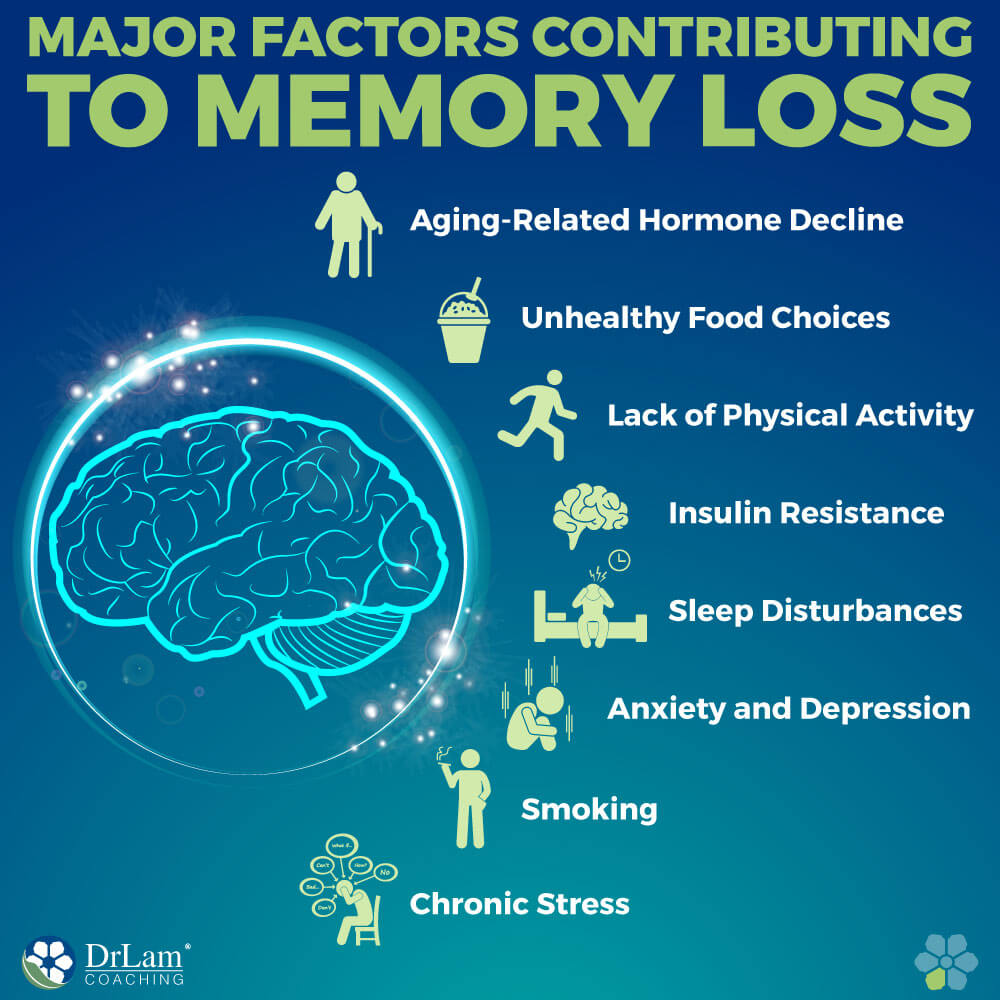
Your brain is dynamic, constantly changing and adapting to new situations and challenges. The brain is neuroplastic in nature. Therefore, the neurons and neural network in your brain can grow, strengthen, and alter their connections in response to any change, dysfunction, development, new information, damage, or sensory stimulation. This helps your brain to compensate for any incurred damage or adjust to any environmental changes. Your brain connections can change over time throughout life.
If the brain is capable of regenerating itself, then why do people suffer from memory loss in the first place? There are various reasons that cause your memory to decline.
Some of the factors that can be associated with memory loss include:
Aging is the number one contributing factor to memory loss. Sex hormones play fundamental roles in cognitive and neural health. As you age, the level of your sex hormones gradually decline. Low levels of sex hormones have been associated with symptoms like changes in memory and difficulty concentrating. Imbalance in the level of sex hormones can cause memory loss.
Women experience memory loss with a rapid reduction in the level of the sex hormone estrogen and progesterone. Estrogen levels rapidly decline in women during menopause. Further, the cortisol levels are also not well regulated which leads to memory degeneration. In men, age-related memory loss is due to a decline in the hormone testosterone.
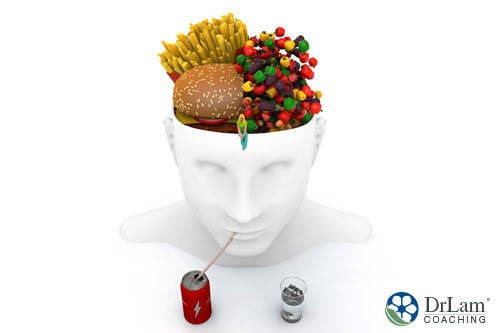 Research has linked the modern diet with increased risk of Alzheimer’s disease. Processed foods do not contain healthy fats that are essential for brain functioning. Further, these foods are high in sodium and sugar that are harmful to your body and brain. High in calories and low in nutrition, processed foods negatively impact your brain health and cognitive abilities. According to a study, a diet containing unhealthy ingredients caused reduction of sugar metabolism in your brain and decreased brain tissues. These factors are believed to indicate Alzheimer’s disease. Other foods that negatively affect your brain health include sugary drinks, foods containing trans fat, fish high in mercury, and alcohol.
Research has linked the modern diet with increased risk of Alzheimer’s disease. Processed foods do not contain healthy fats that are essential for brain functioning. Further, these foods are high in sodium and sugar that are harmful to your body and brain. High in calories and low in nutrition, processed foods negatively impact your brain health and cognitive abilities. According to a study, a diet containing unhealthy ingredients caused reduction of sugar metabolism in your brain and decreased brain tissues. These factors are believed to indicate Alzheimer’s disease. Other foods that negatively affect your brain health include sugary drinks, foods containing trans fat, fish high in mercury, and alcohol.
Studies suggest that exercise can help boost cognitive function and fight dementia. When you exercise, your brain functions at optimum capacity by causing your neurons or nerve cells to multiply and strengthening connections between them. As your brain connections strengthen, you are less susceptible to memory degeneration. Regular exercise helps promote a healthy brain and body.
Your brain produces insulin required for survival of brain cells. ADDL, a toxic chemical, eliminates insulin receptors from your nerve cells thereby making the nerve cells insulin resistant. As ADDL accumulates, your memory starts to degenerate. Research shows that having diabetes doubles the risk of developing Alzheimer’s disease.
Sleep disturbances such as insomnia, sleep apnea, or chronic lack of sleep can contribute to cognitive impairment. According to a study, when compared to those without sleep apnea, people who snore or have sleep apnea developed mild cognitive impairment a decade earlier. Untreated sleep apnea raises the risk of memory deterioration and developing Alzheimer’s disease. Further, chronic lack of sleep hampers the glymphatic system, your brain’s detoxification system which operates only during sleep. The glymphatic system enables your brain to clear toxins and harmful proteins linked to Alzheimer’s disease. With improper sleep, these toxins begin to accumulate in your brain making you more prone to memory loss.
Disturbed sleep raises your cortisol level which can interfere with estrogen production. Further, poor sleep has been linked with stress, decreased immunity, depression and weight gain. Disturbed sleep raises your level of stress which causes an imbalance of various hormones including estrogen.
Further, lack of sleep can negatively affect the neuroplasticity of your brain by modifying the expression of several genes. During sleep, the synaptic connections strengthen which helps boost your memory. Research suggests that a mid-day nap helps restore brain power.
Both these factors exert stress on your adrenals, which reduces the secretion of important hormones such as estrogen. Further, anxiety and depression cause an increase in cortisol levels for dealing with the stress. Increases in cortisol make your brain cells lose synapses which makes it difficult to retrieve and form new memories.
Smoking reduces the blood supply to your brain thus leading to memory loss. Studies show that smokers are more prone to a rapid decline in memory and brain function than non-smokers. This is because smoking causes accumulation of abnormal proteins in the brain which can hamper processing and relay of information.
One especially significant cause of hormone imbalance is chronic stress and associated adrenal fatigue. Because your body responds to stress by producing a cocktail of hormones, and then maintaining those hormones until the stress is gone, it is susceptible to becoming depleted of resources to make the appropriate hormones during these times. 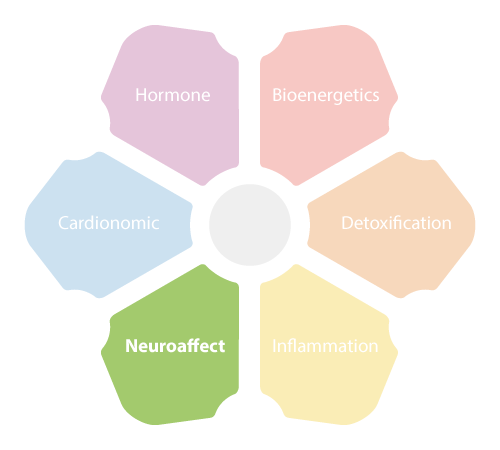
The walnut-shaped adrenal glands are present on the top of your kidneys. They are an important part of your body’s NeuroEndoMetabolic (NEM) Stress Response system. Your body responds to stress through the NEM system, which is a complex network of six circuits and various organs. They function in close coordination to fight stress. When your body experiences stress, the NEM signals your adrenal glands through the Hypothalamic Pituitary Adrenal (HPA) axis for the secretion of the anti-stress hormone cortisol to deal with the stress.
When stress is constant, your adrenals become overburdened and are no longer in a position to secrete adequate cortisol. As a result, your body’s natural stress-fighting ability is reduced, which can lead to adrenal fatigue. When you frequently experience extreme fatigue along with symptoms of anxiety, brain fog, insomnia, low concentration levels, constipation, stubborn weight gain, low energy levels, or craving for salty and fatty food then you could have Adrenal Fatigue Syndrome (AFS).
The Hormonal circuit and Neuroaffect circuit are part of the NEM system. Present in the central nervous system, the Neuroaffect circuit includes the brain, autonomous nervous system, and gut. It helps control cognition, sleep, and mood. Imbalance in this circuit can lead to insomnia, mood swings, anxiety, and lack of concentration. The Hormonal circuit includes the thyroid, adrenal glands, and ovaries/testes. It regulates body temperature, thyroid function, and stress hormones. Imbalance in this circuit can lead to reduced libido, fatigue, a sluggish thyroid, hair loss, weight gain, infertility, or miscarriage.
Your adrenal glands secrete several important hormones including cortisol and pregnenolone. When your adrenals are stressed, they are unable to secrete an adequate quantity of hormones which can lead to an imbalance of the Hormonal circuit and Neuroaffect circuit.
With the adrenals being stressed, the production of pregnenolone and estrogen also decreases. This can negatively affect your cognitive function and memory. Further, the various circuits and organs that are a part of the NEM system can also be disrupted. While hormone therapy for memory loss hopes to restore healthy levels of hormones in your body, thus improving brain health and memory, addressing stress may be more effective.
Studies indicate that hormone therapy for memory loss raises the risk of cardiovascular disease and breast cancer. Further, research shows that hormone therapy does not provide a significant improvement in boosting memory. However, there are natural methods which can help boost your sex hormones, protect your memory form degeneration, and boost cognitive function. Plus these natural remedies are safe and effective. Consider these natural solutions before resorting to hormone therapy for memory loss.
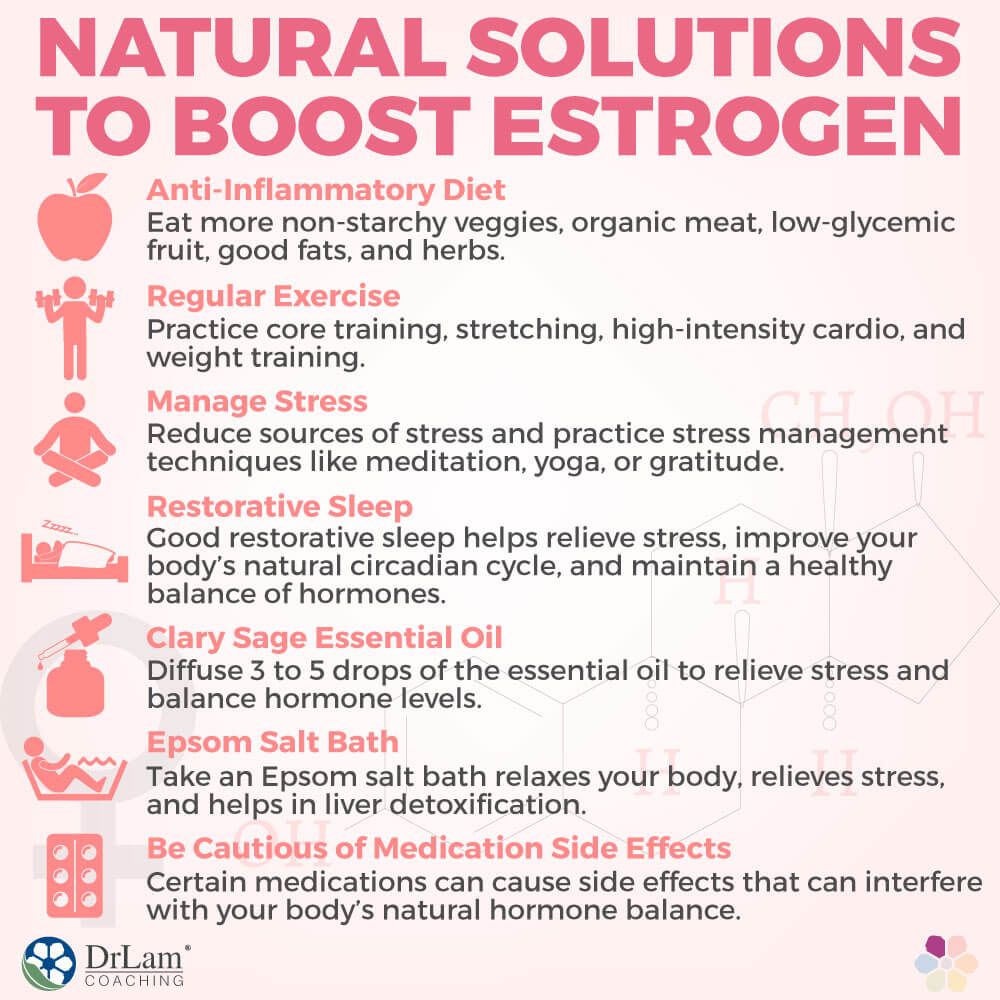

In addition to working to improve hormone levels, there are other steps you can take to improve your memory and support your overall health, besides resorting to hormone therapy for memory loss.
These natural methods can help boost your memory:
Diet has a significant influence on your brain health. Scientists are learning more about how what you eat affects your brain health. And the evidence shows a significant part of this equation has to do with how your gut responds to what you eat.
Your gut and brain are interlinked. Gut controls your immune response and inflammation. Further, several neurotransmitters are produced in your gut which influence your cognitive ability such as understanding, staying focused, processing new information, and recognizing when you are full while eating. Taking care of both your brain and gut supports this balance.
Brain foods are loaded with healthy fats, antioxidants, minerals and vitamins that supply your brain with energy and protect it against various diseases. A Mediterranean diet consisting of fresh, fruits, vegetables, lean protein, legumes, whole grains, and healthy fats helps promote overall health and is a great option. Certain foods such as sprouted seeds, healthy fats, and raw cultured dairies can also help promote both gut and brain health.
 Regular exercise stimulates your nerve cells to multiply and strengthens interconnections, thus encouraging your brain to work at optimum capacity. During exercise, your nerves release neurotrophic factor (BDNF) which triggers several chemicals that promote brain and neural health. Studies show that regular exercise improves blood flow to the brain that helps boost cognitive ability. Therefore, when compared to hormone therapy for memory loss regular exercise is a more effective solution.
Regular exercise stimulates your nerve cells to multiply and strengthens interconnections, thus encouraging your brain to work at optimum capacity. During exercise, your nerves release neurotrophic factor (BDNF) which triggers several chemicals that promote brain and neural health. Studies show that regular exercise improves blood flow to the brain that helps boost cognitive ability. Therefore, when compared to hormone therapy for memory loss regular exercise is a more effective solution.
Studies have linked low sex hormone levels with impaired memory. Pregnenolone, the female sex hormone estrogen, and the male sex hormone testosterone are associated with memory function. However, aging reduces the secretion of these hormones, which has been connected to memory degeneration. The goals of hormone therapy for memory loss is restoring this hormonal balance. However, extensive research suggests that the therapy produces inconsistent results and increase the risk of heart disease.
Studies show that hormone therapy for memory loss offers no significant improvement in cognitive ability. Further, hormone therapy has been associated with an increased risk of heart issues. Therefore, natural solutions are a better alternative for restoring your hormonal balance and reducing symptoms of memory loss.
If you have adrenal fatigue, diabetes, or other serious conditions, it is important to seek out an expert who understands your body and the recovery process before trying these natural methods. Those with AFS can experience paradoxical reactions and adrenal crashes.
It may be best to address the underlying problem first before working on boosting your cognitive function. Understanding the underlying cause of memory impairment helps in successfully dealing with the problem. Natural solutions can be both safe and effective in restoring your hormonal balance and boosting your cognitive function and memory.
© Copyright 2020 Michael Lam, M.D. All Rights Reserved.
Hormone therapy for memory loss focuses on restoring your hormonal balance to boost brain health and cognitive function. However, studies reveal that the therapy produces inconsistent results. Research shows that the therapy raises the risk of cardiovascular problems. People with breast cancer require stopping production of sex hormones. Therefore, hormone therapy is not recommended in such cases.
